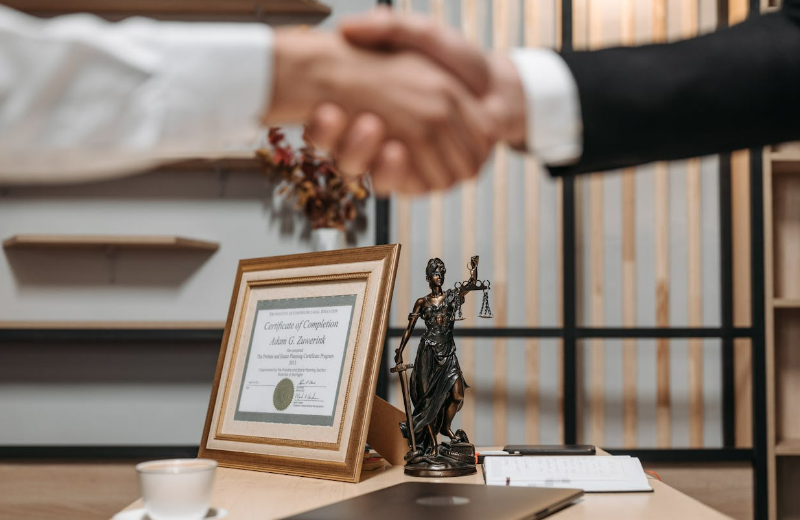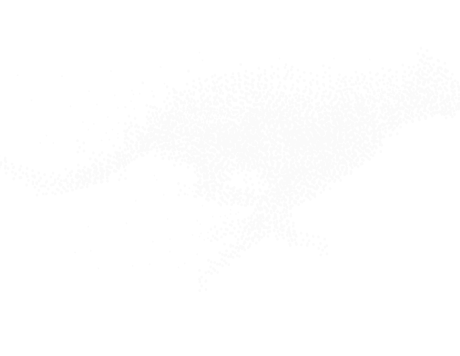When it comes to filing a personal injury lawsuit in New Haven, there are specific legal procedures that must be followed to initiate your case. Understanding these steps is essential to successfully navigate the civil court system.
If you were injured and wish to file a personal injury lawsuit, you can hire Gould Injury Law to fight for you. Our experienced team of fast and efficient personal injury attorneys is dedicated to helping injured clients seek proper compensation.
With our unique approach, we aim to provide faster results and justice for those who have been injured. If you find yourself in a legal dispute following an accident or personal injury case, contact Gould Injury Law to schedule a free initial consultation.

Understanding the Connecticut Civil Court System
Connecticut’s civil court system is the framework through which legal disputes, including personal injury cases, are resolved in the state. Understanding how this system operates is crucial for anyone considering filing a lawsuit in New Haven.
The Connecticut civil court system consists of several levels, starting with the Superior Court, where most civil cases are initially filed. From there, cases may progress to higher courts if necessary.
Navigating the court system requires adherence to specific procedures and rules set forth by Connecticut law. A basic understanding of how the civil court system functions can help individuals make informed decisions about pursuing legal action or seeking alternative dispute resolution options when faced with a personal injury lawsuit.
Types of Personal Injury Lawsuits in New Haven
There are various types of personal injury lawsuits that individuals may encounter in New Haven. Car accidents are among the most common, often resulting in injuries and property damage. Meanwhile, medical malpractice cases involve negligence on the part of healthcare providers that leads to harm or injury. Slip-and-fall accidents also occur due to hazardous conditions on someone else’s property.
In addition, product liability lawsuits arise from defective products causing harm to consumers. Workplace injuries may result in workers’ compensation lawsuits against employers for failing to provide a safe work environment. Dog bites and animal attacks can also lead to personal injury lawsuits when the owners are found liable.
Each type of personal injury case requires specific legal knowledge tailored to its unique circumstances for a successful resolution in New Haven’s civil court system.
The Importance of Hiring an Experienced Personal Injury Lawyer
When it comes to navigating the complexities of personal injury lawsuits in New Haven, hiring an experienced personal injury lawyer is crucial. These legal professionals have a deep understanding of Connecticut’s civil court system and can guide you through the entire process.
An experienced attorney will know how to gather evidence, build a strong case, and negotiate with insurance companies on your behalf to ensure that you receive fast compensation for your injuries. Attorneys understand the nuances of personal injury law and can effectively represent your best interests in court.
By having a knowledgeable lawyer by your side, you increase your chances of a successful outcome in your case. An experienced lawyer can anticipate challenges, navigate legal procedures efficiently, and advocate for the compensation you deserve.
When facing a personal injury lawsuit in New Haven, enlisting the help of an experienced attorney can make all the difference in achieving justice and securing financial recovery for your losses faster than you might otherwise.
Steps for Filing a Personal Injury Lawsuit in New Haven, CT
Several key steps must be taken to file a lawsuit and build a strong case:
- Gather evidence: Collect all pertinent documentation, including accident reports, medical records, and bills. Take photographs or videos of the accident scene, injuries, and property damage. Safeguard any physical evidence, such as damaged property or defective products, as it may be critical in proving liability.
- Witness statements: Obtain statements from witnesses who observed the incident. Their accounts can provide invaluable insight and corroborate your version of events.
- Consult with a personal injury attorney: Schedule a consultation with a seasoned New Haven personal injury attorney. Discuss the specifics of your case, including the circumstances of the accident and the extent of your injuries. Consider the attorney’s experience, track record, and approach to handling personal injury cases. Then collaborate with your attorney to devise a strategy tailored to the unique aspects of your case.
- Determine liability: Your attorney can help identify all parties potentially liable for your injuries, such as individuals, businesses, or government entities. Evidence must be gathered to demonstrate the negligence or wrongful conduct of the responsible parties. Consider whether your actions may have contributed to the accident, as this could impact your ability to recover damages.
- Preparation of legal documents: Work closely with your attorney to prepare and file the necessary legal documents, including a complaint outlining your claims.
- Service of Process: Ensure proper service of the lawsuit on the defendant(s) to initiate the legal proceedings.
- Be involved: Stay actively involved in your case, attending all scheduled court hearings, meetings, and appointments with your attorney. Cooperate fully with your attorney, providing any requested information or documentation promptly. Understand that the legal process can be lengthy and complex. Exercise patience and trust in your attorney’s experience.
Gathering Evidence and Building Your Case
Gathering evidence is crucial for building a strong case when filing a personal injury lawsuit in New Haven. This process involves collecting medical records, accident reports, witness statements, and any other documentation related to your injuries.
Photographs of the accident scene and your injuries can also be valuable evidence. Additionally, keeping track of all expenses, such as medical bills and lost wages, will help calculate the amount of compensation you may be entitled to receive.
Working closely with your personal injury attorney during this stage is essential to ensure that all necessary evidence is gathered effectively. Your lawyer can guide you on what information is needed to support your case and strengthen your chances of a successful outcome in court.
By meticulously gathering evidence early on, you increase the likelihood of recovering fast and fair financial compensation for the damages you have suffered due to the negligence or wrongdoing of another party.
Filing Your Personal Injury Lawsuit
When filing a personal injury lawsuit in New Haven, one of the crucial steps is preparing and serving your complaint. Your legal team can handle the filing process.
The complaint outlines the legal grounds for your case against the defendant. It should include details about the incident, injuries sustained, and the compensation you are seeking.
After drafting your complaint, it must be formally filed with the court. Completing this step initiates the legal process and officially notifies the defendant of the lawsuit. Once filed, a copy of the complaint must be served to all parties involved, according to Connecticut’s rules of civil procedure.
Serving your complaint ensures that all parties are aware of the legal proceedings and have an opportunity to respond. Proper service is essential for moving forward with your personal injury lawsuit and ensuring that due process is followed throughout the litigation process.
After serving the complaint, the defendant has a specific time frame during which they can respond by filing an answer or another responsive pleading. This marks the beginning of formal litigation, where both parties exchange information through discovery to gather evidence and build their respective cases.
The Role of Mediation and Arbitration in Resolving Personal Injury Cases
The role of mediation and arbitration in resolving personal injury cases provides alternative dispute resolution (ADR) options that can help parties settle outside of court. These methods often lead to faster resolutions, cost savings, and more amicable outcomes for all involved.
Mediation is a non-binding process in which a neutral third party, called a mediator, facilitates communication and negotiation between the parties to help them reach a resolution. Mediation can be voluntary or court-ordered and is often used in personal injury cases to help parties find common ground and reach an agreement.
Arbitration is a more formal ADR process in which a neutral third party, called an arbitrator, hears arguments and evidence from both sides and decides on the case. Unlike mediation, arbitration typically results in a binding decision that may not be appealed.
Both mediation and arbitration provide alternatives to traditional courtroom litigation for resolving personal injury cases. These methods can be particularly beneficial for cases involving emotional or sensitive issues, as well as complex legal matters.
One of the main advantages of using mediation or arbitration in personal injury cases is the potential for cost savings. Litigation can be expensive, with court fees, attorney fees, and other costs adding up quickly. Mediation and arbitration typically involve lower fees and fewer expenses than going to trial.
Additionally, these methods offer privacy and confidentiality for all parties involved. Courtroom litigation is a public record, meaning that anyone can access information about the case. By contrast, mediation and arbitration are private proceedings that keep sensitive information private.
Statute of Limitations in Connecticut for Filing a Personal Injury Lawsuit
Understanding the statute of limitations is crucial when considering filing a personal injury lawsuit in Connecticut. This law limits the time a claimant has to bring a legal action after an injury occurs. In Connecticut, the statute of limitations for most personal injury cases is typically 2 years from the incident date.
It’s important to adhere to this timeline, as failing to file within the specified period can result in your case being dismissed by the court. However, certain exceptions or circumstances may extend or shorten this timeframe, so consulting a knowledgeable personal injury attorney is advisable to ensure compliance with the law.
Speak to a Connecticut Personal Injury Attorney Ready to Fight for You
Remember that having a knowledgeable attorney on your side can make all the difference when it comes to personal injury cases in Connecticut. Let Gould Injury Law be your advocate as you navigate the complexities of the legal system and work towards recovering the financial compensation you deserve.
Our team of fast-working personal injury lawyers is here to guide you through the filing process, negotiate settlements with insurance companies on your behalf, and represent your best interests in court. Schedule a free case review today by calling the fast and efficient lawyers of Gould Injury Law at 888-WIN-FAST.
